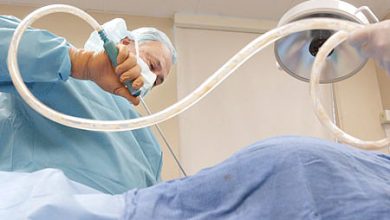How to Choose a Cardiologist –7 Important Tips to Follow

Blacktown is a pretty suburb in the Australian state of New South Wales. One in twenty Australians is said to have some form of heart disease. Hence, it is critical to have the contact details of a cardiologist on your speed dial. One may check the physicians’ credentials and experience on their site. Call the offices of the remaining cardiologists on your list and schedule consultation and interview appointments.
1. Find out How Qualified the Cardiologist is
Board certification is among the most significant things to check for since it proves that the doctor has the proper training, abilities, and expertise to treat cardiology-related disorders. See whether the cardiologist has been accused of malpractice or reprimanded in the past. Information on the cardiologist’s educational background, residency programme, board certifications, malpractice and disciplinary history may be found on state websites.
2. Think About the Skills of the Cardiologist
The heart is a complex organ, and only those with extensive clinical expertise can properly care for it. The higher the level of expertise of your cardiologist, the better your chances of successful therapy. Subspecialty fellowship training is also beneficial. Inquire about the cardiologist’s level of experience treating patients with your specific condition. If you know you need a certain operation, ask the cardiologist how often they have done it and how often problems arise, both in the doctor’s experience and in your own case.
3. Consider Gender
You should choose a cardiologist with whom you feel at ease discussing personal matters, and this includes their gender. Be careful to inquire about the cardiologist’s education and experience treating patients with your particular condition and gender. Some medical centres provide specialised cardiac care for women alone. The factors that cardiologists use to diagnose and treat heart disease in women are improving.
4. Look into the Quality of the Hospital
Think about how well the patients are treated at the hospital where the cardiologist works. Patients who visit hospitals with high rankings have fewer complications and a higher probability of survival, which is why you care about hospital quality. Even though two hospitals are in the same area, they may have very different patient results to report. If you need tests or care at a hospital, you want the place to encourage quick care, not slow it down.
5. Read Evaluations of Patients
You may learn a lot about a doctor’s treatment methods and clinic organisation from patient reviews. Consumers’ experiences with making appointments, waiting, office ambience, and treatment are often discussed in reviews. Reviews may provide light on a physician’s reliability, the quality of care provided, and the attentiveness with which consumers’ inquiries are answered.
6. Know How Your Insurance Covers You
Practicality is the deciding factor in selecting an insurance policy. It’s possible that picking a cardiologist who is covered by your insurance will be the best way to maximise your benefits and minimise out-of-pocket costs. Your plan’s cardiologist selection process should always include consideration of the doctor’s training, hospital, and patient outcomes.
Conclusion:
Choose a cardiologist in blacktown that you feel comfortable talking to and who supports your desire to learn. Ask them questions when you first meet them to see how they respond. Do they encourage your queries and provide comprehensible responses? Find a cardiologist who wants to get to know you, who cares about your treatment choices, and who respects how you make decisions.




